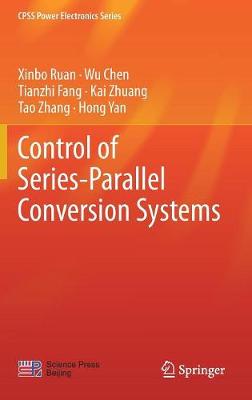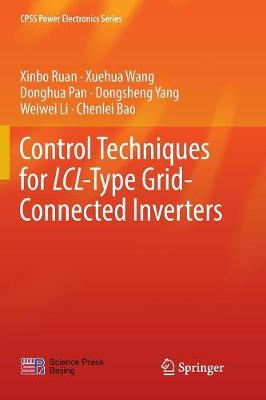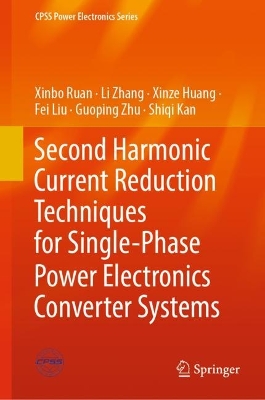CPSS Power Electronics
3 total works
Control of Series-Parallel Conversion Systems
by Xinbo Ruan, Wu Chen, Tianzhi Fang, Kai Zhuang, Tao Zhang, and Hong Yan
Series-parallel conversion systems, in which multiple standardized converter modules are connected in series or parallel at the input and output sides, to meet the demands of various applications. This book focuses on the control strategies for the series-parallel conversion systems with DC-DC converters and DC-AC inverters as the basic modules, respectively, to achieve input voltage/current sharing and output voltage/current sharing among the constituent modules. The detailed theoretical analysis with design examples and experimental validations are presented. This book is essential and valuable reference for graduate students and academics majoring in power electronics and engineers engaged in developing DC-DC converters, DC-AC inverters and power electronics transformers.
Control Techniques for LCL-Type Grid-Connected Inverters
by Xinbo Ruan, Xuehua Wang, Donghua Pan, Dongsheng Yang, Weiwei Li, and Chenlei Bao
This book focuses on control techniques for LCL-type grid-connected inverters to improve system stability, control performance and suppression ability of grid current harmonics. Combining a detailed theoretical analysis with design examples and experimental validations, the book offers an essential reference guide for graduate students and researchers in power electronics, as well as engineers engaged in developing grid-connected inverters for renewable energy generation systems.


